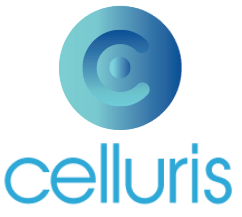In just a few decades, chimeric antigen receptor T-cell therapy (CAR-T cell therapy) has risen as one of the key breakthroughs in oncological treatment in the 21st century.
Throughout the research and testing process of CAR-T therapy, researchers and their partners have learned a lot about what still doesn’t work with CAR-T therapy. With the notable success of CAR-T cells in treating hematologic cancers, there is a growing interest in developing chimeric antigen receptor natural killer (CAR-NK) cells for cancer therapy.
Thus, a new class of therapy focused on cells called natural killer or NK cells engineered for CAR is now emerging to help fill the gaps left by CAR-T cell therapy.
How CAR-NK Therapy Works
According to some studies already published, CAR-NK demonstrates therapeutic potential similar to CAR-T, promising significant benefits in cancer treatment, including solid tumors.
Natural Killer (NK) cells and CD8 cytotoxic T cells are two types of immune cells that can kill target cells through similar cytotoxic mechanisms.
Compared to CAR-T cells, CAR-NK cells can offer some significant advantages, including:
- Better safety, such as minimal cytokine release syndrome and neurotoxicity in the autologous setting and graft-versus-host disease in the allogeneic setting.
- Multiple mechanisms to activate cytotoxic activity.
- High feasibility for “off-the-shelf” manufacturing.
Studies also show that CAR-NK cells could be designed to target various antigens, increase proliferation and in vivo persistence, enhance infiltration into solid tumors, overcome the resistant tumor microenvironment, and ultimately achieve an effective anti-tumor response.
Thus, studies have revealed that CAR-NK cells combine antigen-directed specificity with subsequent intracellular receptor signaling capability to enhance their anticancer functions.
It is important to note that CAR-NK cells can be used as a universal cell-based therapy without requiring human leukocyte antigen (HLA) matching or prior contact with tumor-associated antigens (TAAs).
Advantages of Cells and How CAR-NK Therapy Works
CAR-NK cells have several advantages over CAR-T cells, as NK cells can be manufactured from pre-existing cell lines or allogeneic NK cells independently of major histocompatibility complex (MHC); they can kill cancer cells through CAR-dependent and CAR-independent pathways; and they have less toxicity, especially cytokine release syndrome and neurotoxicity.
CAR-NK cells offer the combination of specificity and enhanced cellular signaling, which expands their anticancer efficacy. An important characteristic of CAR-NK cells is their ability to be used as a universal cell therapy, independent of human leukocyte antigen (HLA) compatibility or tumor-associated antigens (TAAs).
By recognizing multiple antigens, proliferating and persisting in the body, infiltrating tumors, and overcoming the resistant microenvironment, CAR-NK cells present sustained therapeutic potential against cancer. Recent in vivo studies confirm the anticancer efficacy of these redirected cells, renewing interest in cancer immunotherapy.
New Challenges
Natural killer (NK) cells are part of the innate immune system with unique advantages, including the potential for off-the-shelf therapy. A recent human trial of CD19-CAR-NK infusion in patients with relapsed/refractory lymphoid malignancies proved to be safe with promising clinical activity.
Based on these encouraging clinical responses, research is now actively exploring ways to further enhance the potency of CAR-NK cells, prolonging in vivo persistence, and overcoming mechanisms of functional exhaustion.
In addition to these strategies to modulate the intrinsic properties of CAR-NK cells, there are increasing efforts to translate the successes observed in hematologic malignancies to the field of solid tumors.


